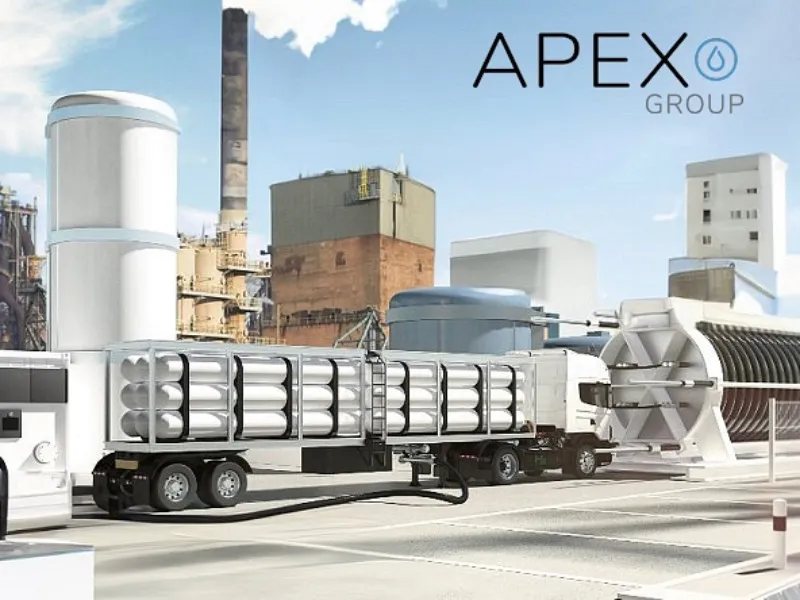- European clean energy companies are increasingly cautious about expanding their operations or investing in U.S. projects due to concerns over a potential election victory by former President Donald Trump.
- This uncertainty is prompting European companies to reconsider their U.S. expansion plans, which could slow the growth of the clean energy sector and impact the broader transition to sustainable energy.
OUR TAKE
The European clean energy giants are now in a love-hate relationship with the US market. Trump’s labeling of Biden’s climate policies as a “green new scam” and the potential repeal of the Inflation Reduction Act (IRA) under his presidency, which heavily benefits the clean tech sector, have them on edge. As the CEO of Luxembourg-based hydrogen company H2Apex put it, Trump’s unpredictable nature makes long-term investments in the US a risky game. They were even considering setting up a hydrogen tank production plant in the US, which would have significantly benefited from the IRA incentives, but fears of a Trump comeback have forced them to scrap those plans despite initial discussions with potential customers. The political drama in the US is truly affecting the bottom line of European companies.
–Miurio huang, BTW reporter
What happened
European clean energy companies are increasingly cautious about expanding their operations or investing in U.S. projects due to concerns over a potential election victory by former President Donald Trump. Trump has criticised President Joe Biden’s climate policies, dismissing them as a “green new scam,” and is expected to seek the repeal of the Inflation Reduction Act (IRA) that has significantly benefited the clean tech sector. The IRA, enacted in 2022, provides substantial tax breaks and subsidies for both U.S. and foreign companies investing in sustainable energy.
The prospect of a second Trump presidency has made European firms wary. Trump’s potential to undo much of Biden’s climate work, including the IRA, is causing hesitation in decision-making. Peter Roessner, CEO of Luxembourg-based hydrogen company H2Apex, expressed his concerns, noting that Trump’s unpredictable nature makes long-term investments in the U.S. risky. H2Apex had considered building a hydrogen tank production plant in the U.S., which would have significantly reduced costs under the IRA. However, due to fears over Trump’s re-election, the company has scrapped these plans despite having initial discussions with potential customers.
The anxiety among European clean tech firms is palpable. Market speculation about Trump’s chances of regaining the White House has intensified following his recent election rally incident and subsequent Republican nomination. Recent polls indicate a tightening race between Trump and Kamala Harris, the likely Democratic candidate who aligns with Biden’s climate views. As a result, European companies are reassessing their strategies and investment plans in the U.S.
Also read: Trump shooter employed a drone as a ‘rearview mirror’ prior to the incident
Also read: Trump’s bitcoin shift: GOP courts crypto voters at ‘Bitcoin 2024’
Why it’s important
The apprehension among European clean tech firms highlights a critical intersection of politics and global investment. The Inflation Reduction Act has been a major driver for international companies seeking to capitalize on the U.S. market’s clean energy incentives. If Trump were to repeal or significantly alter this legislation, it could jeopardize projected investments worth up to $1 trillion in low-carbon technologies by 2050, according to Wood Mackenzie.
Consultancies like Roland Berger suggest that while a full repeal of the IRA is unlikely, a Trump administration could still undermine incentives for electric vehicles, solar power, and other clean technologies. For instance, German solar firm SMA Solar recently issued a profit warning, partially due to the political uncertainty in the U.S., and has delayed choosing a location for its new factory. This hesitation reflects broader industry anxieties, as evidenced by the underperformance of clean tech shares and delays in investment decisions.
Despite the uncertainty, some companies like Nordex, a German wind turbine maker, are maintaining their U.S. operations, emphasizing the long-term value of the U.S. market. Others, such as Thyssenkrupp Nucera and Nel, are postponing major investments until the political climate becomes clearer.
The impact of these uncertainties extends beyond clean tech. German machinery firm Trumpf has reported a 12% drop in U.S. sales, attributing it to “geopolitical uncertainties” that are affecting industrial investment decisions. This illustrates how global political developments can create widespread “analysis paralysis,” complicating strategic decisions and impacting various sectors.
The Trump effect underscores the broader implications of political instability on international business and investment strategies. As European firms navigate these turbulent waters, the outcome of the U.S. election could either renew their optimism or deepen their strategic caution.

